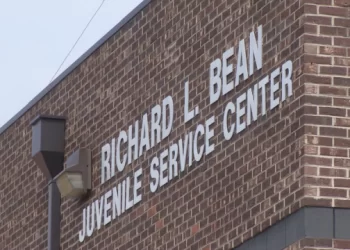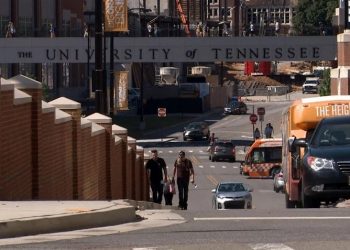Maryville, Tenn. – A bill that would allow Tennessee schools to charge tuition to undocumented students, or even deny enrollment to those whose parents cannot afford to pay, passed a significant hurdle on Monday. The House Government Operations Committee voted narrowly, with eight votes in favor and seven against, sending the controversial legislation to the House Finance, Ways, and Means Committee for further discussion.
The bill, which has drawn widespread attention and protest, aims to address the issue of undocumented students attending public schools in Tennessee. Under current law, some undocumented students can attend school at no cost, but this new proposal would give schools the ability to charge tuition or refuse enrollment based on a family’s ability to pay. Supporters argue that the measure would help curb the financial burden on taxpayers, while critics contend it unfairly targets vulnerable students.
As the vote unfolded, demonstrators gathered outside the committee room, staging a silent protest by reciting the Lord’s Prayer in an act of civil disobedience. Many of the demonstrators expressed concern over the moral implications of the bill, calling it discriminatory and harmful to children who are already in a precarious position due to their immigration status.
The bill’s passage through the Government Operations Committee marks the first step in what promises to be a heated legislative battle. If the bill progresses through the House Finance, Ways, and Means Committee, it could move on to the full House for a vote. If passed, the legislation would have profound consequences for the state’s undocumented immigrant population, potentially making it more difficult for children to receive an education.
Opponents of the bill argue that it would further marginalize undocumented students, many of whom are already facing hardships due to their immigration status. “Education is a fundamental right, and this bill would strip away access to it based on a student’s or their family’s financial situation,” said one of the protestors outside the committee room.
Proponents of the bill, however, argue that it is a necessary step to protect taxpayers and ensure that public resources are used responsibly. They point to concerns over the growing number of undocumented students in schools and the financial strain it places on local education systems.
As the legislation moves forward, it remains to be seen whether it will gain broader support in the Tennessee House. The outcome could have long-lasting implications for the state’s education system and its approach to undocumented students, further fueling the ongoing national debate over immigration and access to public services.
This bill will be under the scrutiny of both lawmakers and activists in the coming weeks, and its fate could shape future policies in Tennessee and beyond.













